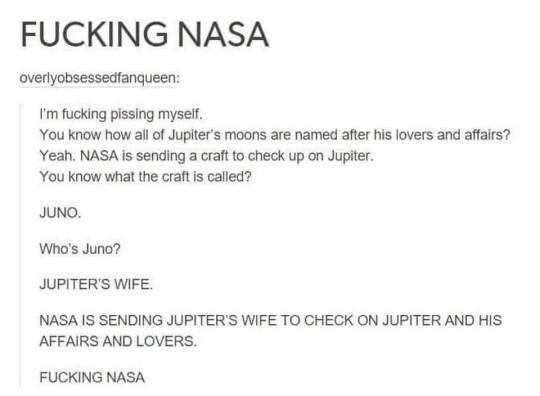#roman myths
Photo

As punishment for his cruel rejection of the nymph Echo, Nemesis cursed Narcissus to fall in love with his own reflection in a pool of water. Unable to take his eyes away from the beautiful youth he did not recognise as himself, Narcissus stayed by the side of the water until he wasted away.
I’ve been wanting to draw more mythology pieces for a while now! Here is my interpretation of Echo and Narcissus, a Roman myth from Ovid's Metamorphoses.
#Roman mythology#roman myths#Narcissus#Narcissus and Echo#Echo#mythology#myths#greek mythology#greek myths#Ovid#ancient rome#pigeon princess#my art#this was a lot of fun to draw#illustration
5K notes
·
View notes
Text
Hey you want to be let in onto a little secret?
Arachne? The story of Arachne, her legend, her entire character?
...
Well it is very, very likely she never was part of Greek mythology and only belongs to Roman mythology.
Because there is no text from Ancient Greece that mentions her, and no visual depiction of her in Ancient Greek art.
You want to know where her story comes from? OVID. OVID'S METAMORPHOSES. Yes, THE defining Roman work of Roman literature that shaped Roman myths. That's literaly where Arachne comes from: Ovid. As a result, there are two possibilities. Either A) Ovid completely invented her (which is something he did other times, he did invent some characters we consider today to be part of Greek mythology) or B) He took inspiration from an actual Greek legend but twisted it and rewrote it in a weird way (This is what happened with Medusa. He wrote Medusa's story taking inspiration from the Greek legend that was told at the time, but changed the context entirely to fit his own literary and political goals. As such from a story of Medusa being turned into a Gorgon by Athena for being too vain and for boasting (a crime of "hubris", very Greek), Ovid wrote a story of Medusa being cursed for having been raped inside the goddess' temple (a crime of "impurity", much more Roman in values and notions).
However... It seems very unlikely to be either of those since, again, we literaly have no recording from Ancient Greece about Athena ever being involved with an "Arachne" or with spiders as a whole.
In fact, it seems that the closest answer to where Arachne comes from might be C) She might have been woven out of a purely Roman tradition projected onto the Greek myths.
Because the only other literary mention of Arachne ever in Ancient literature is Virgil's Georgics (Virgil being the other founding-father of Roman literature and literary Roman myths, thanks to his Aeneid), and Virgil doesn't even write of Arachne as a proper character or as a human. All he wrote is literaly, in a side-detail, in a brief mention, that Athena hates spiders. No explanation why, it is just "the spider is hated by Minerva". Given it is said so casually as a detail with no explanation, it is very possible this means this was a reference meant to be caught and understood by the Roman reader "The spider, this animal hated by Minerva as we all know". So... it seems very likely that the creation of Arachne as a character stems from a non-Greek, older tradition of the goddess Minerva (the proper Latin Minerva, the solely Roman goddess) having a problem with spiders.
And when Minerva was associated with the Greek goddess Athena, and the Roman had their authors rewrite or invent myths to have their own mythology (or rather their own AU on Greek mythology)... The tale got spread far enough and popular enough that everybody threw back the story onto the Greek Athena. After all, Arachne was a Greek name right? IT MEANS SHE WAS GREEK RIGHT? Well no, she was Roman :p That's another thing of Ovid, whenever he invented a character he made sure to give them Greek names so that it sounded like a real Greek character.
So yeah, while Arachne became one of the famous characters and legends of Greco-Roman mythology as a whole (what many call "Classical mythology"), she actually was NOT part of Greek mythology, and only existed from Hellenized Roman mythology onward. You're welcome.
#arachne#greek mythology#athena#roman mythology#minerva#ovid#virgil#misconceptions#greek myths#roman myths
42 notes
·
View notes
Text
the goddess Vesta in astrology/mythology and our sacred devotion

Vesta in Roman mythology (Hestia in Greek) was widely known as the goddess of the hearth, the home, and domestic life.
to give you an idea of her importance, every family in Rome held a sacred fire in honor of her and most never let it burn out, hoping for her protection of their home in return. even more importantly, the city of Rome built the Temple of Vesta which held the eternal, holy fire that symbolized the prosperity and protection of Rome as a whole. this sacred fire was guarded and kept ablaze by Vesta’s priestesses, the Vestal Virgins.
Vesta was notably a virgin goddess, and so naturally the Vestal Virgins were sworn to 30 years of chastity starting from the moment they were appointed from childhood (around 6-10 years old). breaking this vow ended with deadly consequences, and so because they held such great responsibilities over their heads, they were regarded very highly in Rome and had greater privileges than other women of their time.
the Vestal Virgins were noted as a group of 6. in numerology, this number holds associations to responsibility, especially concerning domestic affairs. in astrology, the 6H holds domain over our responsibilities, routines, and service to others. also, Saturn is the 6th planet from the Sun and holds domain over- wait for it- responsibility, law, restriction, and discipline.
some astrologers will use the houses and the signs interchangeably, such as: Aries/1H, Taurus/2H, Gemini/3H, etc. this is where the 6H and it’s associated sign, Virgo, comes in. Virgo’s are known for their work ethic, their attention to detail, and most importantly their service to others. these themes all find a home in the Vestal Virgins; they spend 30 years of their lives doing nothing but making sure the fire of Rome is burning. the Latin word for hearth is focus, and Vesta along with the Vestal Virgins held an unmatched focus and dedication. after the Vestal Virgins completed their 30 years of service, they were allowed to marry by law, but most didn’t. and they found that the ones who did greatly regretted it. “it was observed that their change was not a happy one, but accompanied ever after with regret and melancholy;”
as an astrologer who works with deities, i personally believe this described regret and melancholy could possibly be attributed to the women’s relationship with Vesta and their dedication to her. imagine living your entire teenager and young adult life servicing and developing a bond with a goddess of such strong convictions, only to throw it all away as soon as your contract was up. i believe the Vestal Virgins loved Vesta and loved their work so much that most wanted to continue it for the rest of their lives, which brings us to how Vesta comes into play in our lives.
Vesta (4) the asteroid and Hestia (46) the asteroid in our chart can show us where we feel this same level of focus. they show us where, like the Vestal Virgins are dedicated to their eternal virginity and Rome's eternal flame, we feel this undying dedication. they show us where we feel this sacred, spiritual devotion that Vesta holds.
Vesta/Hestia in the signs and houses: dedication to...
Aries/1H: to one's self, to independence, to autonomy. your devotion to yourself is an integral part of who you are. you will pick yourself over and over with second thought or remorse; your fire is yourself.
Taurus/2H: to resources, to stability, to security. your devotion to self-sufficiency is integral to your comfort. your self worth is greatly dependent on your usefulness; your fire is functional.
Gemini/3H: to learning, to communication, to minds. your devotion to knowledge makes you integral to your community. intelligence is of the highest regard to you; your fire is perceptive.
Cancer/4H: to the home, to nurturing, to loved ones. your devotion to your roots is an integral part of your life. your dedication is often only perceived to those closest to you; your fire is veiled.
Leo/5H: to expression, to love, to creation. your devotion to pleasure is an integral part of your happiness. your own creations or self expression is easily admired by others; your fire is personal.
Virgo/6H: to efficiency, to healing, to purity. your devotion to service is an integral part of your well being. helping yourself and others will always be what you do; your fire is regenerative.
Libra/7H: to others, to cooperation, to harmony. your devotion to others is an integral part of the balance in your life. you have the ability to liberate others; your fire is altruistic.
Scorpio/8H: to depth, to releasing, to change. your devotion to the death and rebirth process is an integral part of your evolution. you have a talent of letting loose things that no longer belong in your life; your fire is transformative.
Sagittarius/9H: to truth, to principle, to understanding. your devotion to wisdom is an integral part of your beliefs. your ideology is heavily based on the bigger picture; your fire is exploratory.
Capricorn/10H: to goals, to ambition, to achievements. your devotion to passion is an integral part of your public image. your accomplishments are respected by others; your fire is authoritative.
Aquarius/11H: to humanity, to society, to advancement. your devotion to the collective is an integral part of your awareness. you are skilled at staying individual while in the group; your fire is innovative.
Pisces/12H: to emotions, to the mysticism, to the unconscious. your devotion to spirituality is integral to your natural psychic abilities. you possess a connection to other worlds; your fire is holy.
#vesta#vesta astrology#vesta goddess#vesta mythology#hestia#hestia astrology#hestia goddess#hestia mythology#vesta in the signs#vesta in the houses#vestal virgins#roman mythology#greek mythology#greek myths#roman myths#twelve olympians#zodiac signs#astro observations#astrology observations#astro community#astro tumblr#cosmic witch#witchcraft
624 notes
·
View notes
Text

#mythology#greek myth memes#greek mythology#memes#roman myths#greek mythology memes#jupiter#zeus greek mythology#Zeus#ganymede#horses#zodiac#aqaurius#greek olympians#roman mythology#greek myths#meme
60 notes
·
View notes
Note
what are your favorite moments of the senate/Roman bureaucracy being ridiculous? like, scandals/in-fights/ passive aggression etc.. bonus if it seems like the sort of scuffle Congressmen would get into today
My all-time favorites are the Servilia Love Letter Incident, the Bona Dea scandal, and everything in my "Cato causing problems" tag, but I've posted about those before. So let's talk about a lesser-known scandal that set the tone for the rest of Roman history: the mysterious disappearance of Romulus!
Romulus, king and top general of the Romans, has been acting increasingly high-handed lately, and the Senate are Not Happy about it!
They accompany Romulus to a meeting at some place called Goat's Marsh, when BAM a solar eclipse happens and the audience runs off, leaving Romulus alone and surrounded by senators.
The sun returns, the audience returns, and they're like "Where's Romulus?" and the senators are like "He ascended to godhood while you weren't looking. Went up in the sky and everything. Definitely not murdered."
The Roman people are like "Like fuck he wasn't," and break out the torches and pitchforks.
The one senator they actually respect, Julius Proculus of Alba, claims he saw the king strolling down the street, perfectly healthy. "He says not to look for him, though, because he went back to hang out with the gods. But he's fine. And not murdered."
Romulus gets listed among the gods (and later conflated with Quirinus), and the Romans put away the pitchforks. For now.
Now, to me this story looks an awful lot like another chap who was a great military leader, "founded" a new era (if you ask Augustus), wielded king-like power, pissed people off with his heavy-handed rule, was stabbed 23 times by a mob of senators and supposedly became a god amid bizarre weather phenomena. And all our surviving sources postdate Julius Caesar's assassination. You might also notice he shares a family name with Julius Proculus, and that the Caesars claimed to be from Alba, too.
So, this is just me speculating, but I suspect we're looking at more than just a scandal here. I think the myth of Romulus' death evolved to reflect the fears and suspicions of later audiences, and that these fears included both the fear of losing one's liberty to a king, and tensions between the Senate and People. Julius Caesar's death was probably one of several influences that caused each generation of Romans to reinterpret the myths through their own lens. Kind of like how modern people tend to project our own biases onto Roman history, too!
Also, the fact that even the Romans weren't sure whether their first king ascended to godhood or got stabbed by senators is just. So quintessentially Roman. I love it.
36 notes
·
View notes
Text
Greek mythology retellings are overrated, we need to make Roman mythology retellings people!
#greek mythology#greek myths#greek pantheon#hellenic pagan#roman mythology#roman myths#ancient rome#ancient greek mythology#ancient greece#retelling#retellings#greek myth retellings#mythology retellings
24 notes
·
View notes
Text
I personally think Romans took INSPIRATION, big one, from Greek mythology, but from the moment in itself the "Roman alteregos" appeared,they took their own life.
It doesn't come natural to me to think to Bacchus and Dionysus or to Mercury and Hermes as the same person. Because they aren't. They necessarily came out slightly different, mostly in temper, and sometimes even in physical appearance.
#greek mythology#greek myths#greek goddesses#greek gods#greek myth#roman mythology#roman myths#roman gods#roman goddesses
6 notes
·
View notes
Text
Aeneas
-- son of Anchises and Venus
-- commanded by the gods to flee Troy
-- attempted to find a new home
-- several settlement attempts failed
-- father died in Sicily
-- had an affair with the Carthage queen Dido
-- Mercury reminded him of his journey and he left Carthage
-- returned to Sicily
-- held funeral games for his deceased father
-- went to the underworld
-- welcomed by the Latins
-- Lavinia, daughter of the king of the Latins, loved Aeneas but was promised to Turnus, king of the Rutuli
-- Latinus received a prophecy that Lavinia would marry Aeneas and had them betrothed
-- Turnus declared war on Aeneas
-- Aeneas won
-- became the ancestor of Romulus and Remus, founders of Rome
.
Patreon
#studyblr#notes#history#historyblr#history notes#world history#world history notes#western civ#western civ notes#western civilization#western civilization notes#mythology#roman mythology#greek mythology#latin mythology#european mythology#mythology notes#myths#latin myths#roman myths#greek myths#roman history#greek history#troy#aeneas#turnus#latinus#lavinia#dido#carthage
2 notes
·
View notes
Text
It’s interesting to me that we used to view Greek mythology through a Roman lens (even using the Roman names for gods), especially because I can’t fucking find any Good ResearchTM on the Roman pantheon.
#hermes guide me#I have found exactly TWO sources that talk about Hera and Juno as deities#don’t even get me started on Mars and Mercury#oh and did you know there’s basically nothing out there about hesiod’s theogony in relation to the evolution of greek mythology?#well now you do#i have seriously considered turning to children’s encyclopedias for my sources#vent post#greek mythology#greek myths#roman mythology#roman myths#research#essay writing#writeblr#🐍
15 notes
·
View notes
Text
Lol the Disney Hercules' movie defo got varied reactions from the Greek deities in MCU
Here are some of them
. Zeus : Is actually happy that they portrayed him in a more ' flattering ' light
. Hera : Rolls her eyes at Hera being portrayed as ' sweet and motherly ' in Disney's Hercules
. Hercules : Just LAUGH and enjoys the whole thing cuz Disney's Hercules kinda reminds him of himself when he was younger. He....feels complicated at seeing scenes with Megara tho.
. Poseidon : Is annoyed at WHY Poseidon in the movie doesn't have much scenes yet, then is comforted that Poseidon got more scenes in Disney's Herc series. Loves the whole merman king design of Poseidon in Disney's Herc tho
. Amphitrite : Similar case as above
. Apollo : LOVES how he is portrayed as a bisexual icon that he is in Disney's Hercules franchise. Also defo JAMS to the music in the movie
. Artemis : Laughs at the shenanigans her younger twin brother at times got into in Disney's Hercules, LOVES her being portrayed as a smart and brave huntress goddess who cares for her loved ones deeply
. Aphrodite : Actually impressed and touched with how Aphrodite in Disney's Hercules is curvy and also portrayed as being sexy and smart and determined and NOT just a pretty face
. Hermes : Just LAUGHS about Hermes in Disney's Herc and enjoys the portrayal
. Demeter : Is kinda annoyed that she didn't have much scenes in the movie and has a relatively minor role in the series. Still loves the whole badass harvest goddess thing in Disney's Herc
. Hades and Persephone :
Persephone - Well at least they got you right in spades, dear
Hades - Very flattering, shame they don't have much scenes of you in this installment though
Persephone - Agreed
The 2 share a kiss
. Dionysus : Just LAUGHS and enjoys the scenes Disney's Dionysus is in
. Ares : LAUGHS and goes, in some scenes with Disney's Ares, ' This is painfully accurate ' and enjoys the scenes he is in
. Minerva : LOVES Disney's Athena and enjoys the scenes she is in
2 notes
·
View notes
Text
Rape in “Greek” mythology
I thought I made a post about this before, but I can’t find it back so... either I did and it got lost, or maybe it disappeared X)
So... Greek mythology has a big reputation for being full of rape. And I am not saying that there isn’t any rape in it - there are rape stories in Greek mythology. BUT... there might not be as many as you believe. Because the thing is that there’s a lot of rape in ROMAN mythology, and given people got a lot of their info about Greek mythology from writers who are actually talking about Roman versions of the legends and the myths... this leads to some confusion.
But the prominence of rape in the Roman version of the myths, compared to the Greeks, is exemplified by Ovid. Ah, Ovid. Everybody knows his Metamorphoses. He was to the Romans what Hesiod was to the Greeks, the same way Virgil was the “new Homer”.His rewrite of Greek myths into Roman literature not only became a foundation of Roman mythology, but also became one of the main sources of “Classical” mythology for both the Middle-Ages and the Renaissance Europe. When you said “Greek myth” people pointed out Ovid as their main source.
The problem being that Ovid wrote essentially Roman legends. Yes he took Greek myths, but he did more than just changing the names: he actually rewrote the stories. And one of the things he did was adding rapes. Lots of them. I am not afraid to say in a jestful but sincere way that Ovid might have had a rape fetish.
The two most prominent examples are two of the unfamous rapes of mythology: Medusa and Callisto. In Ovid’s story, both women are raped by gods and both women are punished for it. These stories were heralded as the epitome of the unfairness of Greek mythology. Problem is... in Greek mythology they’re not raped at all. And only one of them is punished.
In Hesiod’s texts, Medusa seems to have a consensual relationship with Poseidon (and quite a pleasant one at that, with them lying in beautiful beds of flowers and all that), and there is no talks of rape. And the whole story of Medusa being a mortal woman punished by Athena/Minerva for being raped in her temple was COMPLETELY invented by Ovid. In Greek mythology, Medusa was a monster since birth, born out of gods well-known for birthing evil monsters (which notably explains why her being the “only mortal of the Gorgon sisters” is treated as a big deal, as her mortality is a literal anomaly in her divine family).
Callisto’s case is eerily similar. Ovid wrote that Zeus tricked her first by turning into Diana/Artemis, and then explicitely raped her, forcing himself onto her. But in Hesiod’s text, Zeus is said to have “seduced” Callisto - AND the text says their affair actually went on for quite some time, only stopping when Artemis noticed that Callisto was pregnant. Nothing about any kind of rape.
So... two cases of consensual relationships and romances in Hesiod that were turned into brutal rapes by Ovid.
And should I point out that so far I only found the story of Eurydice dying because she tried to avoid being raped in Virgil’s texts - aka another big Roman writer whose texts reinvented Greek mythology and later helped build the Roman mythology?
Once more, I am not saying Greek mythology was devoid of rape. But I do say that the Roman versions of the myths added rapes everywhere and turned a lot of consensual relationships into rapes.
#greek mythology#greek myths#rape#medusa#callisto#eurydice#ovid#virgil#roman mythology#roman myths#rapist#greek gods#roman gods
214 notes
·
View notes
Text

I will NEVER not laugh 🤣
4 notes
·
View notes
Text
it’s a good thing you’re not Eurydice, because i can’t stop looking at you
#mythology#greek myth memes#greek mythology#memes#roman myths#greek mythology memes#roman mythology#greek myths#mythology memes#puns#bad puns#terrible puns#i love puns#funny puns#pick up lines#bad pickup lines
31 notes
·
View notes
Text
Cassandra by me
Cassandra
No one believed
A woman with the future in her eyes
And prophecy on her lips
Whether cursed by apollo
Or the hubris of men
No one listened then
No one listens now
The tragedy of Helen
The fall of Troy
No one believed
and they all paid the price
for ignoring
A woman with the future in her eyes
And prophecy in her lungs
You paid too an
unfair price
for a fate undeserved
Tied to men
Reeking of blood
Spilled from Daughters
Stolen of Mothers
Praised all the same
By more bloodstained hands
Did you see agamemnon?
Bleeding in the tub?
Did you run?
Run to to make your own fate?
I like to think
Maybe you did
And lived in peace
For the rest of your days
In myth or in life
Becuase you have future in your eyes
And prophecy on your tongue
That no one believed
Cassandra
0 notes